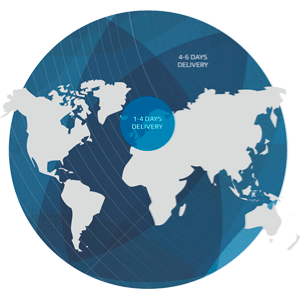The United States did not rule out that sanctions against Russia could become excessive

The United States is concerned that anti-Russian sanctions imposed against the backdrop of a special operation in Ukraine may become excessive, Deputy Treasury Secretary Wally Adeyemo said during a speech at a congressional hearing broadcast by C-SPAN.
“In the United States alone, we have imposed a thousand sanctions against Russian structures and individuals,” he added.
See also Sanctions against SWIFT 01:44
In addition, according to Adeyemo, since the beginning of the military operation in Ukraine, Moscow has probably increased its oil revenues. “We know that today RUSSIA is selling less oil in terms of barrels than before the invasion [of Ukraine], but due to rising prices, it can make more profit,” the deputy minister said.
He noted that the United States is discussing with allies and partners the prospects for introducing a ceiling on purchase prices for oil from Russia, as well as exchanging data on the assets of Russian businessmen around the world.
The White House announced the discussion in the G7 of the price limit for oil from Russia Economics
The US imposed an oil and gas embargo on March 8. In announcing this, US President Joe Biden acknowledged that such a decision would lead to an increase in gasoline prices in the United States, but at the same time stated the need to "put pressure" on Russian President Vladimir Putin because of the military operation in Ukraine. Later, the EU joined the sanctions against Russian oil. The ban includes the supply of raw materials by sea, and countries dependent on Russian oil imports will continue to receive it through the Druzhba pipeline.
Read on RBC Pro Pro The US market has reached a fair assessment.This is evidenced by the “Rule 20” of Article Pro Tomorrow may no longer work:3 steps to meaningful software import substitution Instructions Pro Digitalization for elders:how Russians earn money in Uzbekistan Articles Pro What financial protection measures to use in the contract Instructions ProWrongful dismissal: what to do if you were "asked to leave" Instructions Pro Being a vegan is good for you.Is it True Articles Pro Serendipity:how to make a coincidence non-randomHow retailers can keep their usual assortment for Russians InstructionsHow retailers can keep their usual assortment for Russians InstructionsUS Treasury Secretary Janet Yellen said earlier that Washington is interested in Russian oil entering the world market, as this will help keep prices down and avoid a recession. On May 20, Yellen announced that the G7 countries discussed the creation of a cartel of buyers of Russian oil to control the increase in fuel prices. It is assumed that within its framework a price ceiling will be set, which will allow the West to reduce Russian budget revenues from oil sales without causing "too much burden on the world economy."
Russian Foreign Minister Sergei Lavrov ruled out budget losses this year due to restrictions on Russian oil supplies by sea. According to him, oil markets do not obey political "orders", and Moscow has alternatives to the European market, where it is increasing supplies. The Kremlin, speaking of the embargo by the EU, warned that such a decision would "hit everyone." According to Deputy Prime Minister Alexander Novak, in the event of a ban, world oil prices could jump to $300 per barrel.
Read together with it:
- The Russian Ministry of Agriculture proposes extending veterinary regulations until 2032.The extension includes regulations for the prevention and eradication of diseases such as bradsot (Clostridium septicum), trichinosis (Trichinella), blackleg (Clostridium chauvoei), and porcine reproductive and respiratory syndrome (PRRS). The proposed changes stipulate the following new deadlines: for bradsot and trichinosis - from March 1, 2......
- The IEA sees a risk of a decline in oil production in Russia due to sanctions.The IEA sees a risk of reduced oil production in RUSSIA due to US sanctions , but maintains its production forecast. According to the IEA, Russian oil exports will remain unchanged.There is a "significant downside risk" to Russia's oil production forecast due to US sanctions, the International Energy Agency (IEA) said in a report.BLOOMBERG . The agency's experts believe that the latest US sanction...
- UniCredit заявил о галактических усилиях из-за санкций против РоссииUniCredit старается не нарушить «более 15 тыс. санкций», а также не «совершать ошибки», которые позволят изъять его активы в России, заявил гендиректор. После начала военной операции банк начал рассматривать возможность ухода Итальянский банк UniCredit прилагает «галактические усилия», пытаясь соблюсти международные санкции в отношении своего российского подразделения. Об этом заявил генеральный д...
- He crawled to the icon with prayer. The true story of a man who overcame drug addiction.Alexander Ovchinnikov. Topic News. Our project's hero was a drug addict for many years. The thought that this was a dead end never left him, but his addiction proved stronger. One day, when he could no longer walk, he crawled to an icon in prayer. This became his first step toward a new life. Today, he heads a charity center that helps those who have given up hope and are unable to quit ALCOHOL an...
- Низкое предложение и устойчивый спрос: в Аргентине растут цены на мясоЦены на говядину снова выросли, что отразилось на полках супермаркетов и в мясных магазинах. За последние две недели розничные цены выросли на 8–12%, а на некоторые популярные отрубы рост превысил 15% по сравнению с октябрем. Тем не менее, продажи остаются высокими: потребители продолжают покупать, принимая новые цены и закрепляя тенденцию, которая повторяется каждый год в конце года, когда спрос ...




























































